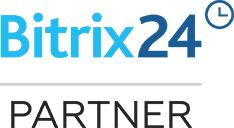As users navigate the digital landscape through cPanel, prioritizing the security of individual accounts is crucial. This article focuses on key security practices for cPanel users, empowering them to take proactive measures in safeguarding their data, settings, and online presence.
1- Craft Strong and Unique Passwords
Start with a strong foundation by creating unique, complex passwords for cPanel accounts. Combine uppercase and lowercase letters, numbers, and special characters to enhance password strength. Avoid using easily guessable information, such as names or birthdays, and consider employing a reputable password manager for added convenience and security.
2- Activate Two-Factor Authentication (2FA)
Strengthen the security of cPanel accounts by enabling Two-Factor Authentication (2FA). This extra layer of verification, often involving a temporary code sent to a mobile device, adds an additional hurdle for potential unauthorized access, even if passwords are compromised.
3- Regularly Review and Update Account Information
Periodically review and update account information, including email addresses and contact details. This ensures that in the event of any security-related communication or account recovery, users can be promptly notified, maintaining control over their cPanel account.
4- Be Mindful of Phishing Attempts
Stay vigilant against phishing attempts by carefully scrutinizing emails, messages, or links that request login credentials. Legitimate service providers, including cPanel, will not ask for sensitive information through unsolicited emails. When in doubt, access cPanel directly through the official website rather than clicking on potentially malicious links.
5- Monitor Account Activity
Regularly check the account activity logs provided within cPanel. Monitoring login history and recent activity helps users identify any unauthorized access or suspicious behavior. If any anomalies are detected, users can take immediate action to secure their account.
6- Keep Software and Applications Updated
Ensure that all software and applications associated with cPanel are kept up-to-date. This includes web browsers, plugins, and any additional tools used for website management. Regular updates often include security patches that address vulnerabilities and enhance overall user account protection.
7- Practice Responsible File Management
Exercise caution when uploading, managing, or sharing files within cPanel. Only use secure and reputable sources for file transfers, and regularly audit the content of your account to identify and remove any unnecessary or potentially harmful files.
Conclusion
By incorporating these user-centric security practices, individuals can actively contribute to the protection of their cPanel accounts. Empowering users with the knowledge and tools to enhance account security not only safeguards personal data but also contributes to a more resilient and secure hosting environment for everyone involved. Stay proactive, stay informed, and enjoy a safer and more secure cPanel experience.








